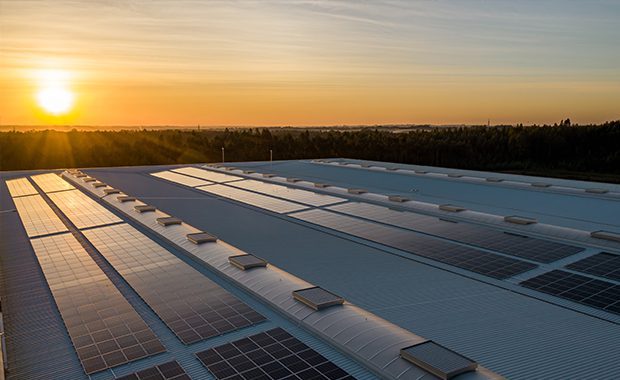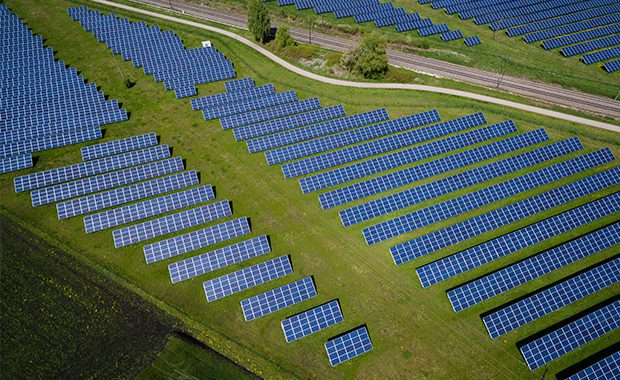‘Net zero’ has become very topical and an increasingly mainstream issue. As one of the Government’s flagship policies, the Net Zero Strategy and related initiatives, such as the Heat and Buildings Strategy, may encourage many businesses and investors to look more closely at Government activity in decarbonisation and energy efficiency.
Last month, GK Strategy hosted a roundtable discussion with keynote speaker, Dr Alan Whitehead MP, Shadow Minister for Energy and the Green New Deal. As ESG specialists, GK pride ourselves on working with investors and organisations that value and demonstrate the importance of sustainability policies.
We strongly believe that the investment community has a vital role to play in the net zero agenda.
GK co-founder and executive chairman, Robin Grainger, asked Dr Whitehead and other participants some important questions about what ‘net zero’ looks like practically, how the investment community can help the Government achieve its targets, and what is the new Government’s take on the net zero agenda.
Beginning the discussion, it was clear that net zero policies are here to stay. The shadow minister expressed his desire for a greater adoption of net zero as a ‘state of being’ rather than simply being an aspiration. He said that it should become a constant in the economy, and ultimately the basis upon which the entirety of the economy operates.
Dr Whitehead outlined where he thought the UK was doing well and where it was lagging behind. He said that one area which required much more attention was that of land use, and land use change, to ensure that food systems were resilient to shocks.
He went on to say that the UK was generally performing quite well on low carbon energy, partly due to some very ambitious plans from the Government. He also noted that the UK was beginning to develop a more effective carbon capture and storage economy, which would be particularly important for high-emitting industries in the future and could eventually be used to support hydrogen production.
The Government came in for criticism on its attitude towards infrastructure, arguing that it was not realistic enough, and did not account for the need to have necessary infrastructure in place well before the net zero goal of 2050.
The Labour frontbencher stated he believed that the UK is also ‘woefully deficient’ with regard to its grid system as a result of the historic focus on fossil fuel-orientated energy, which has meant that the increasingly necessary transmission of clean, renewable power from the British coastlines to inland regions is made more difficult.
We also heard Dr Whitehead explain Labour’s proposals for net zero, which were firmed up at the recent Labour Party Conference in Liverpool last month. Labour would support the current landscape by:
- creating a £180 billion green investment fund that would drive development of infrastructure, lead the electric vehicle (EV) revolution, and help Britain lead the world in hydrogen;
- giving more of a focus to the demand side of energy, seeking to use energy in a smarter way through a big retrofit programme;
- joining up more of the thinking currently emerging from Government, simultaneously aiming to ensure that projects could be run at the local level.
Comparing this to the new Conservative Government under Prime Minister Liz Truss, there seems to be a greater Labour commitment to the net zero agenda. These measures targeting investment, especially in the demand side of energy, and associated job creation, seem like a good start.
With the Truss Government’s approval rating, and that of the whole Conservative Party, declining sharply in recent weeks, it would be useful for investors and businesses to begin, or continue, their dialogues with influential Labour policymakers.
The discussion last month cemented the fact that net zero policymaking is here to stay, even under a pro-fracking Truss Government, and certainly under a Labour administration. Private equity firms and other investors should take government policies seriously and consider investing in the ‘green transition’. Dr Whitehead advised against investing in the ‘brown economy’ and into areas that are likely become stranded assets.
He concluded that it will hardly be a ‘feast or famine’ situation for the investment community as the UK continues to transition to a fully green economy. In his view, there would undoubtedly be many opportunities that will arise with the advent of a green economy, with new markets opening up and new technologies to support.
GK provide expert advice for investors and business leaders looking to take advantage of the green economy; to learn more about it and the transition to net zero, please contact milo@gkstrategy.com.
About GK Strategy
GK Strategy is a political consultancy based in the heart of Westminster. We support private equity in their due diligence process by advising on deals and producing political due diligence reports, identifying any risks to an asset in the deal process.
GK Strategy also provide strategic communications support to companies once the deal process is complete.



